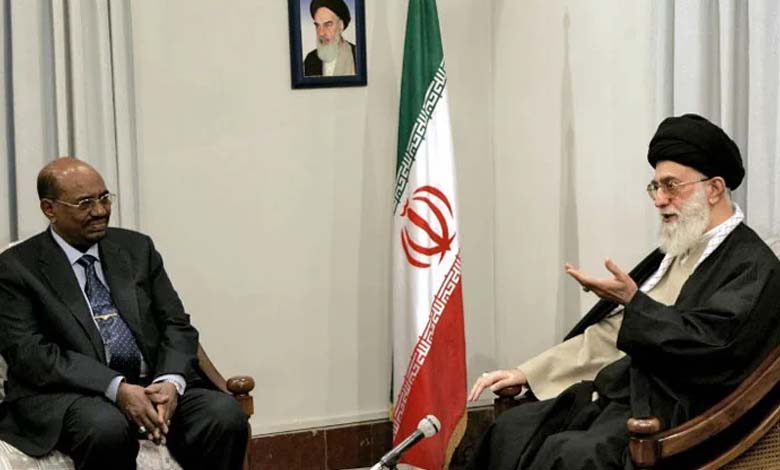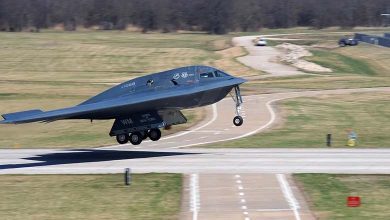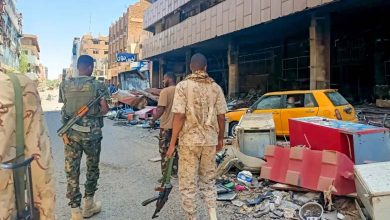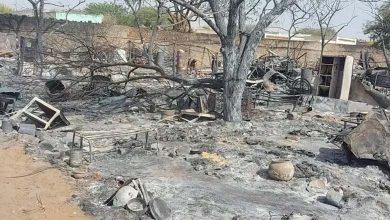The Secret Behind Western and American Fears of the Restoration of Relations between Sudan and Iran

The return of diplomatic relations between Sudan and Iran at a time when the internal war between the army and the Rapid Support Forces is ongoing has raised many concerns among some opposition political forces domestically and some world countries, especially the United States and the West.
The return of diplomatic relations between Sudan and Iran at a time when the internal war between the army and the Rapid Support Forces is ongoing has raised many concerns among some opposition political forces domestically and some world countries, especially the United States and the West.
What is the secret behind these concerns and what could Tehran achieve behind a country suffering from conflicts, wars, and major internal crises threatening the state’s existence? And how does Iran aspire to exert influence in a country under American pressure and sanctions for many years, which have not ended completely to this day, despite years passing since the departure of al-Bashir?
To begin with, Iranian researcher and specialist in regional and international affairs, Hakim Amhaz, says, “What is being raised about fears of the return of Sudanese-Iranian relations is nothing but an attempt by those who raise these fears to achieve their own goals, meaning that they want to use Iran to achieve their goals.”
Private Goals
He added in his statement, “When we talk about the opposing parties to Sudanese army commander Abdul Fattah al-Burhan, considering that Sudanese-Iranian relations have returned through him, as he is considered the recognized representative or his government is recognized internationally, which prompted Iran to deal with the matter in accordance with international agreements, and therefore it rebuilt relations with Khartoum.”
Amhaz continued, “The fears raised are intended to keep Iran an enemy to everyone and a ‘bogeyman’ used to achieve private goals associated with a political tool whether at the Sudanese domestic level or at the Western level, and if we talk about Iranian benefit from the return of relations with Sudan, we must review the current Sudanese reality and the state of war and internal division, and therefore I do not think that Iran can achieve significant goals behind those relations and how it can invest those relations in a country suffering from a civil war.”
The Iranian researcher said, “In my estimation, what Iran aims to achieve behind those relations is to achieve the goals set by the government of Iranian President Ibrahim Raisi, which necessitates reopening relations with Arab countries and Islamic countries in general, and this is reflected in the relations between Iran and Saudi Arabia and some Arab countries, and Sudan was one of the countries that boycotted Iran after the clashes between Saudi Arabia and the Islamic Republic of Iran, followed by cutting off relations by some Arab countries with Iran.”
Cheap Goals
Regarding what is being raised about Iran supplying Khartoum with drones, Amhaz says, “This is nothing but a pretext to achieve cheap goals in this context because it is not possible for Tehran to supply the Sudanese army with drones to use them against Sudanese citizens in the current internal war, this is unlikely in my opinion, and talking about this matter is a Western pretext marketed as it happened before when there was talk of Iran supplying Russia with drones to use in the military operation with Ukraine, which Iran, Russia, and Ukraine have denied so far, and they have not been able to provide any evidence that those drones are Iranian, despite holding a single meeting between the Iranians and Ukrainians and not providing evidence and not attending the second meeting that was scheduled on time based on orders, if the expression is correct, from the United States of America.”
The Painful Reality
The Iranian researcher pointed to what is happening today around Sudan after the return of raising fears of Sudanese-Iranian relations, specifically Iranian relations with Abdul Fattah al-Burhan, and the other issue they are trying to raise is that Sudan has a location on the Red Sea, and therefore Iran can benefit from it, and the response: How can Iran benefit from that in light of the current reality? Will Iran go and establish military bases in that area? I think the matter does not go beyond raising dust and pretexts within the framework of the large international campaign, whether from the West or non-West, against the Islamic Republic of Iran, and things are proceeding within the framework of the ongoing war by the West and the United States of America against Iran.
The Painful Reality
The Iranian researcher pointed out what is happening today regarding Sudan after the return of raising fears of Sudanese-Iranian relations, specifically Iranian relations with Abdel Fattah al-Burhan. Another issue they are trying to raise is that Sudan has a location on the Red Sea, and therefore Iran can benefit from it. The question arises: How can Iran benefit from that in the current context? Will Iran go and establish military bases in that area? I believe that the matter does not go beyond raising dust and pretexts within the framework of the large international campaign, whether from the West or non-West, against the Islamic Republic of Iran, and things are proceeding within the framework of the ongoing war by the West and the United States of America against Iran.
American Influence
The Iranian researcher emphasized that the United States of America is the one who possesses influence in Sudan, which is under its pressure and not Iran’s. Evidence of this is that Sudan cut ties with Iran, in addition to the pressures exerted on Sudanese by Americans and others, leading Khartoum to agree to normalize with Israel. This means that the significant influence and impact are with the United States of America, which imposed on Sudanese the recognition of Israel in order to lift the sanctions imposed on Sudan.
Previous Relations
On the other hand, Sudanese politician Walid Ali mentioned that Sudan had unprecedented relations with Iran in Africa during the nineties on economic and military levels. Iran provided Sudan with manufacturing technology that significantly contributed to the development of Sudan’s military defenses.
Ali added that the sudden severing of relations between Sudan and Iran by the Bashir regime was an ill-considered and hasty step because it deprived Sudan of the advantage of being a good mediator and mediator in the tensions that arise periodically, whether between Iran and the Gulf states or even between Iran and the countries with interests in the Red Sea region in general.
Western Fears
Ali continued, the current fears arise from the return of those relations considering that the Red Sea is currently a very volatile and hotly contested area. The West and the Arab Gulf states may fear the possibility of Iran’s expansion along the western coast of the Red Sea. Sudan has 800 kilometers on the Red Sea and is characterized by numerous natural ports that allow the docking of large ships and boats without any human intervention. These ports have been used in many crises during the twentieth and nineteenth centuries, so these fears are entirely justified according to the historical evidence of these coasts.
Sudanese politician Ali pointed out what any force could do without obstacles on such open coasts, and in light of the Yemeni crisis and escalating tensions due to the Ethiopian agreement and the Somali land and the European-American military buildup, Iran’s entry into many crises may result if the Sudanese government does not wisely and skillfully manage this file to avoid slipping and drowning in these already fiery waters.
Iranian Foreign Minister Hussein Amir Abdollahian, during a meeting with his Sudanese counterpart, Ali Siddiq, in Tehran a few days ago, emphasized that “the reopening of their embassies is an important step in developing mutual cooperation between the two countries.” Abdollahian‘s statements came during Siddiq’s visit to Tehran for high-level talks, the first since Sudan announced last October the restoration of relations with Iran, according to the Iranian news agency IRNA.
The Iranian Foreign Minister told his Sudanese counterpart during their meeting that “the presence of the Sudanese delegation in Tehran demonstrates the serious will of senior Sudanese officials to strengthen and develop relations with Iran,” adding that his country is also committed to developing relations with Sudan, according to him.
Abdollahian also highlighted Iran’s availability of valuable experiences and capabilities in industrial, engineering, modern technology, health, and medical fields, as well as its readiness to transfer these experiences to expand and develop Sudan.
On the other hand, Sudanese Foreign Minister Ali Siddiq expressed regret for the interruption of diplomatic relations between Tehran and Khartoum in 2016 and expressed his country’s sincere desire to restore and expand bilateral relations.
The Sudanese government announced in October 2023 the resumption of diplomatic relations with Iran, thus ending a diplomatic hiatus between the two countries that lasted for about 7 years.












